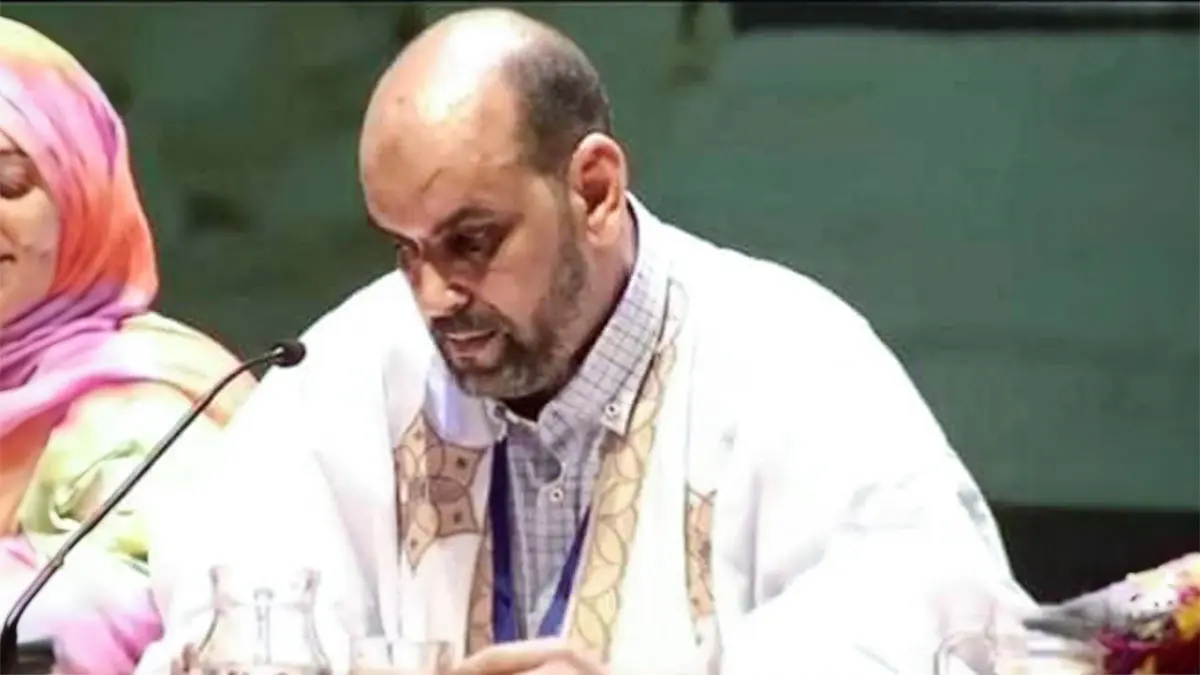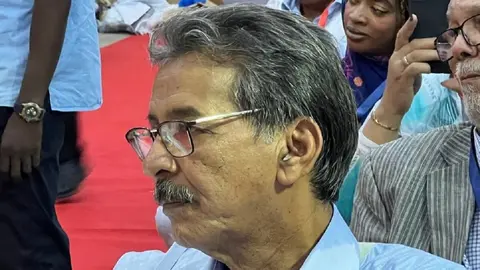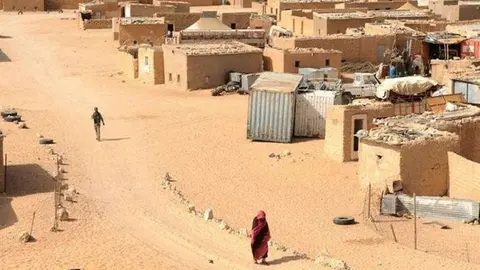Mohammed Lamine Al-Naffa: ‘The Kingdom of Morocco must look for new partners and more realistic Saharawi negotiators’

Mohammed Lamine Al-Naffa, leader of the Movement Saharawi for Peace (MSP), affirmed that ‘the Kingdom of Morocco must look for new partners and more realistic Saharawi negotiators, and these are present and ready to find a solution to this conflict’.
Mohammed Lamine Al-Naffa, son of an illustrious notable of the Erguibat tribe and member of the Sahara Assembly during the Spanish era, made this statement to the Moroccan media Hespress after French President Emmanuel Macron announced that the French nation recognised Morocco's sovereignty over Western Sahara and supported the Moroccan kingdom's autonomy plan for the Saharawi territory.
In response to the question, the media outlet Hespress offered an interview with the member of the Permanent Political Commission and coordinator of the Political Committee of the MSP. In it, Mohammed Lamine Al-Naffa stressed that the proposal of his movement, which pushes for a negotiated political solution, ‘is pragmatic and realistic and takes into account all geopolitical and regional variables while guaranteeing a solution to this long-standing conflict that has claimed the lives of thousands of Sahrawi refugees in the Tindouf camps’.
Comparing the MSP's proposal with the positions of the Polisario Front, he noted that ‘the latter remained trapped in fixed formulas and ideas that may have been a profitable currency at one time, but this is not the case today’.
Al-Naffa added: ‘What confirms the validity of the MSP's proposal is that all influential countries in the world support it by calling for realism in resolving this conflict, such as the United States of America, Spain and France’, pointing out that ‘the Security Council in all its resolutions was very frank in calling for a realistic solution to the Sahara conflict’.
Commenting on the Polisario Front statement, which came after the last session of the UN Security Council on Western Sahara, Mohammed Lamine Al-Naffa pointed out that ‘this statement is aimed at calming the population of the Tindouf camps’, adding: ‘To say that there are influential countries in the UN, in the Security Council, which support Morocco and conspire in its favour is a clear admission of the failure of the Polisario leaders to mobilise international support for their thesis’. Al-Naffa indicated that the Polisario Front ‘has neither diplomatic nor military means to reverse the correlation of forces’.
The leader of the Movement Saharawi for Peace further affirmed that ‘the leadership of the Polisario Front confirms each time that it does not want to resolve this conflict, because, first of all, it has no decision of its own, since the decision to accept this or that solution is Algiers’, and then the acceptance by the Polisario Front of any political solution will inevitably be at the expense of its revolutionary capital’, and, therefore - says Al-Naffa - ’the Kingdom of Morocco is obliged to look for new Saharawi partners who are more realistic and negotiators, and these are present and ready to find a solution’.
Al-Naffa also pointed out that ‘betting on the search for a solution with the Polisario and behind it with Algeria, implies a huge waste of time and the postponement of opportunities for the development of the Sahara'.










